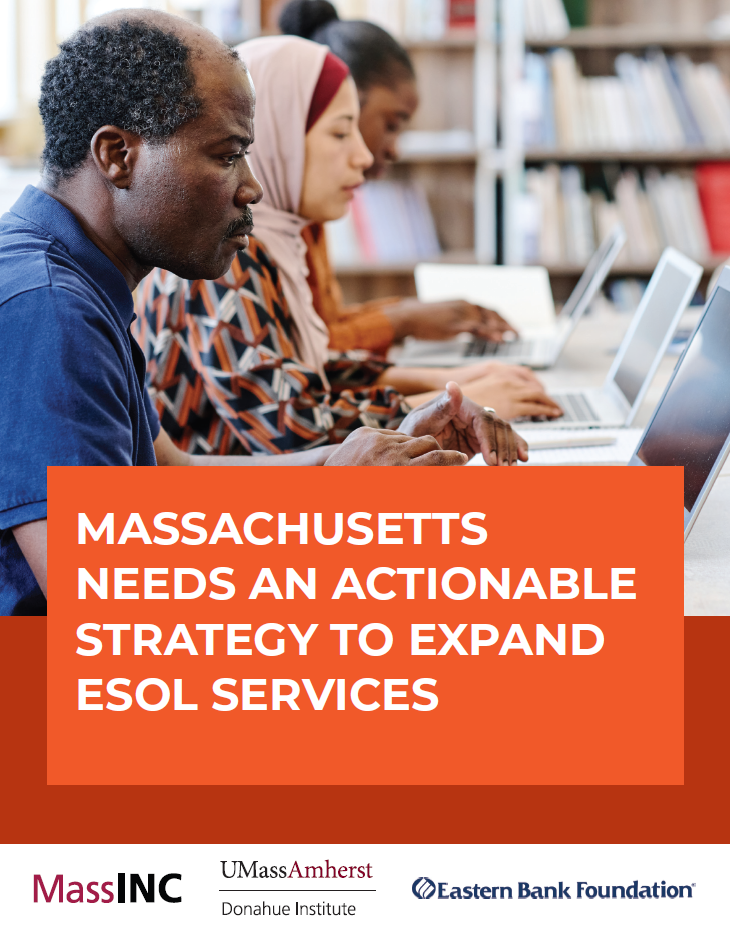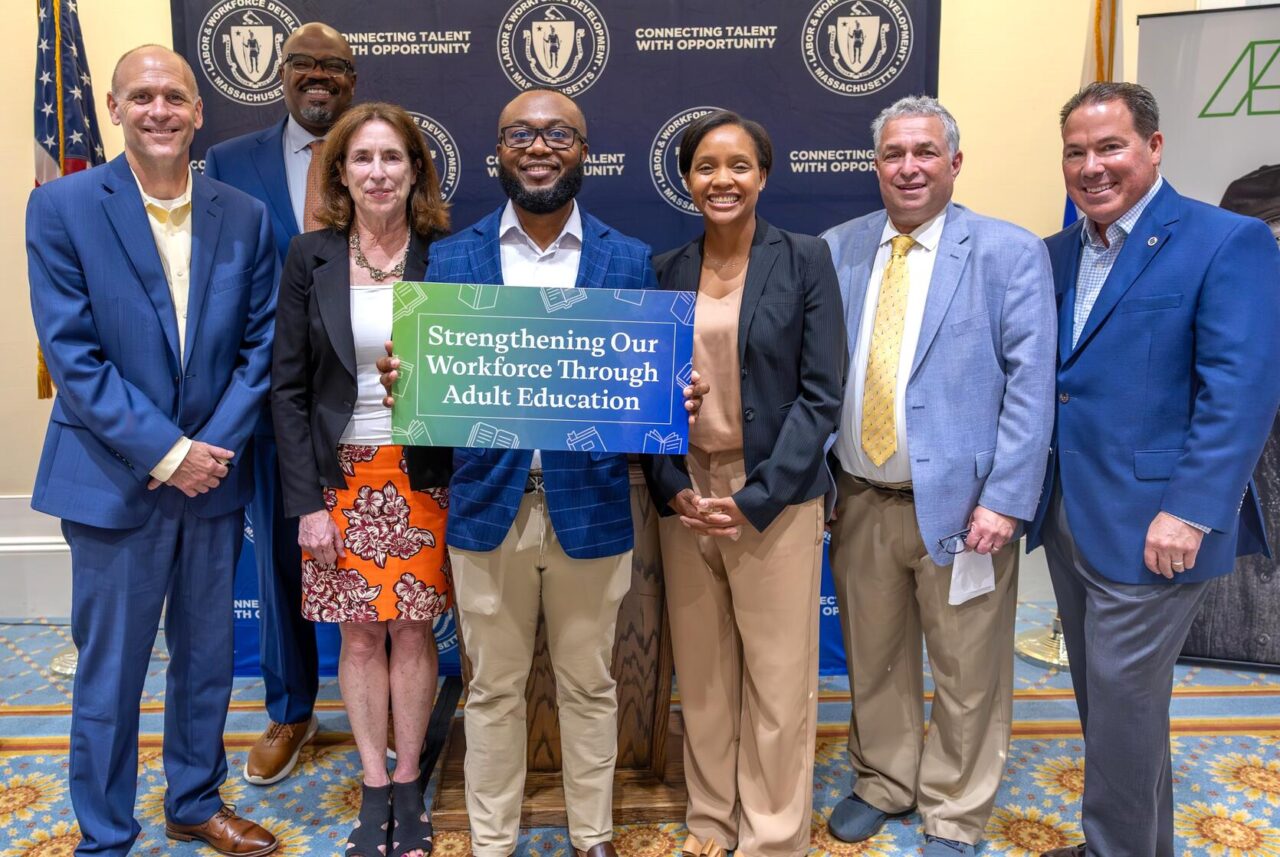Massachusetts is facing a growing demand for skilled workers, and a growing population of residents eager to meet that demand. But one persistent barrier continues to hold thousands back: limited access to high-quality, career-aligned English for Speakers of Other Languages (ESOL) instruction. This month marked a significant step forward in closing that gap.
Governor Maura Healey and Lieutenant Governor Kim Driscoll announced a $10 million investment in ESOL and workforce training through the recently passed Fair Share supplemental budget. The state estimates that this funding will expand access to career-focused ESOL programs for up to 5,000 residents over the next two years—helping working-age adults gain the skills needed to thrive in high-demand sectors like healthcare, hospitality, and manufacturing.
This investment was timely. Just as Massachusetts moves to expand access, the federal government has delayed releasing nearly $13 million in Adult Basic Education Grants that the state relies on to fund core programming. Without intervention, these delays could severely undermine services for English learners—many of whom are already facing long waitlists and limited options.
In this context, state leadership matters. But so do private sector partnerships.
We are proud to share that Eastern Bank Foundation has pledged a $10 million match, doubling the state’s investment through a new Career-Focused English Proficiency Initiative. Their funding will support curriculum development, teacher training, community partnerships, and other system-building efforts to help learners succeed in the workplace.
Eastern Bank Foundation’s commitment builds on its long-standing partnership with the MassINC Policy Center. Over the past year, we collaborated to examine the landscape of ESOL access and to identify policy interventions that would create meaningful, measurable impact. Our research helped spotlight the scale of the challenge: More than 1 in 10 working-age adults in Massachusetts has limited English proficiency, yet ESOL infrastructure remains under-resourced, fragmented, and disconnected from employer demand.
The MassINC Policy Center is proud to have our research inform this moment, and we will continue driving data-informed strategies to meet the Commonwealth’s evolving needs.

This study outlines the benefits of expanding public investment in ESOL and provides a roadmap for making high-quality ESOL services accessible across Massachusetts. Explore the findings and recommendations in the full report.
Our findings underscored the need for the public and private sectors to align around a common goal: removing language barriers that keep capable workers on the sidelines. Both state and philanthropic leaders have now responded with bold commitments.
This is a policy moment worth recognizing. The Healey-Driscoll Administration’s investment, paired with Eastern Bank Foundation’s match, will:
- Expand ESOL access for thousands of jobseekers
- Connect programs directly to workforce needs
- Build system-wide capacity for sustainable delivery
- Signal long-term policy alignment on economic mobility and talent development
As Massachusetts continues to navigate workforce shortages and demographic shifts, investments like these are essential. At the MassINC Policy Center, we remain committed to supporting evidence-based solutions that make our labor market more equitable, dynamic, and inclusive.
We’re grateful to both the Healey-Driscoll Administration and Eastern Bank Foundation for advancing this work—and proud to contribute to a vision of shared prosperity through language access.
